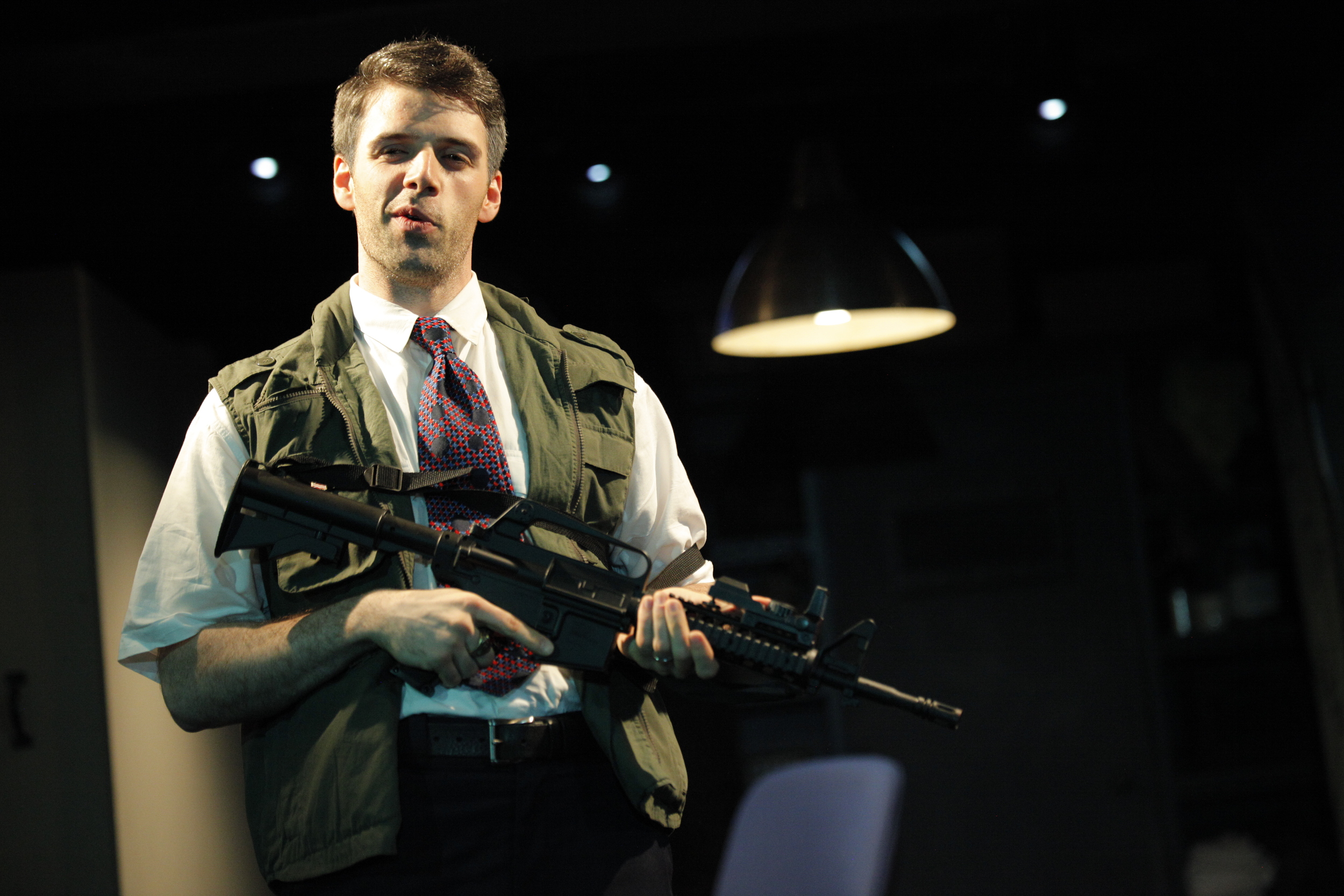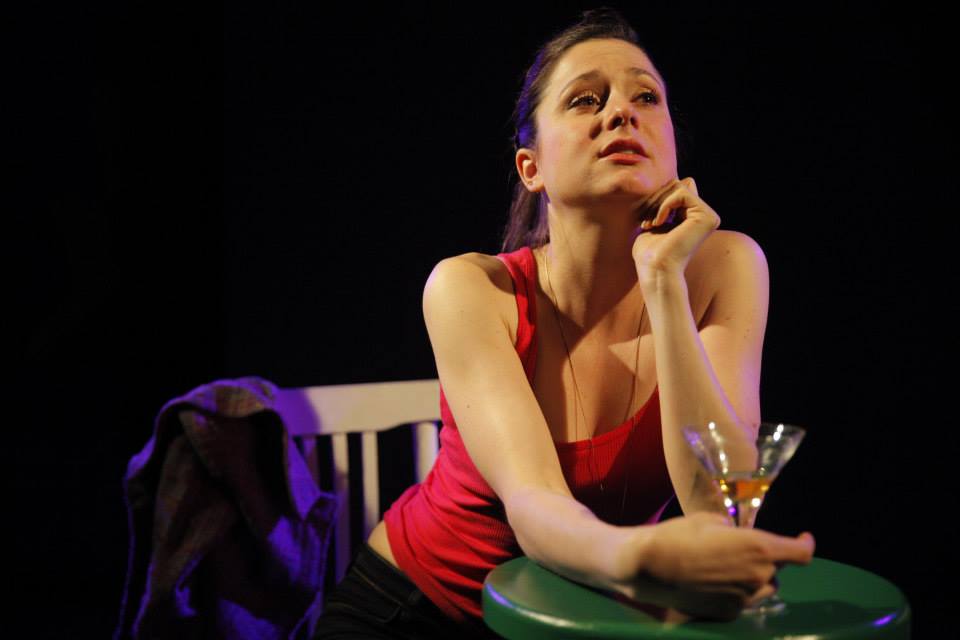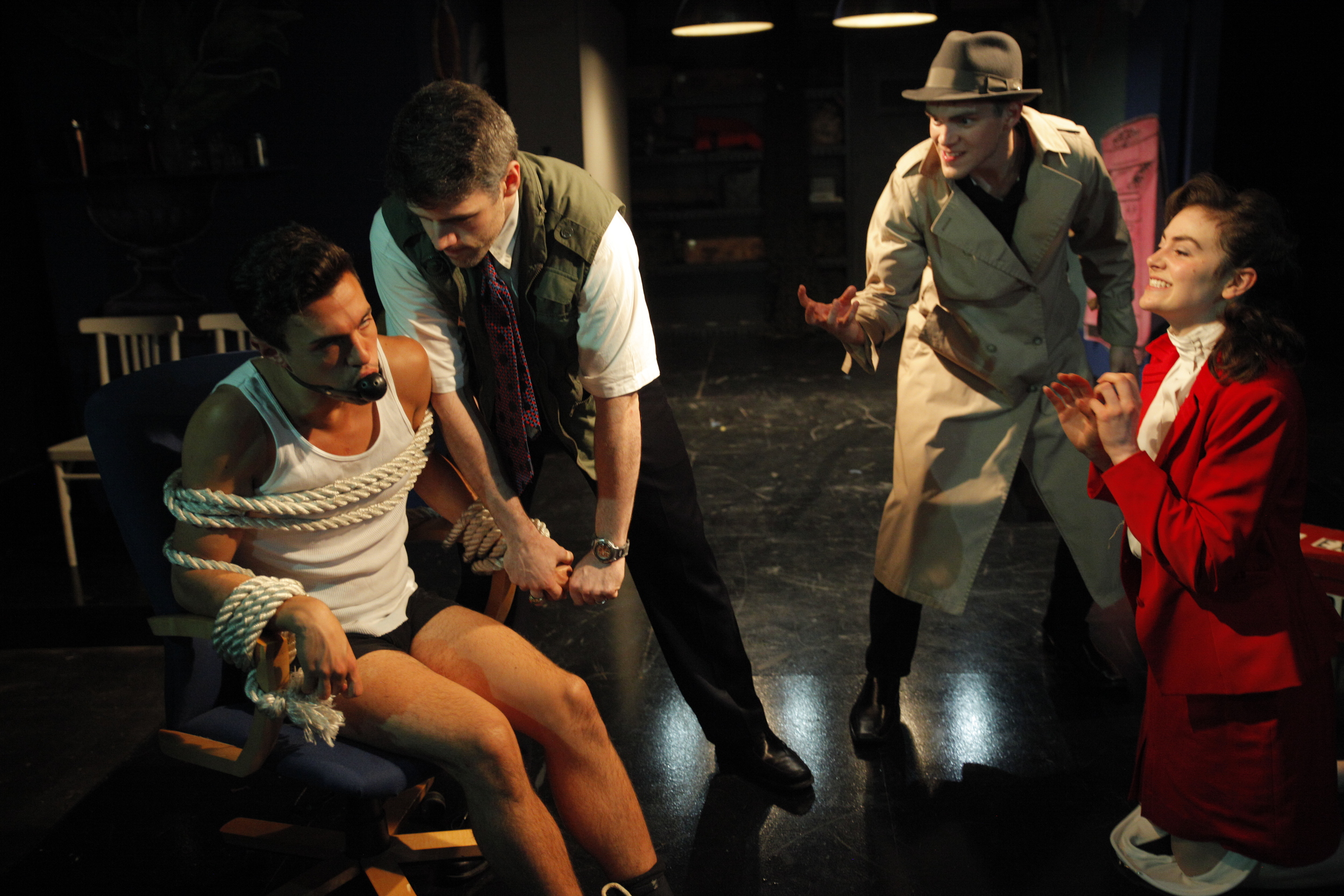Review of Why Torture is Wrong and the People Who Love Them The first offering of the 2014—40th anniversary—Yale Summer Cabaret stages the work of former YSD student, founding member of the Summer Cabaret, and recent Tony-winning playwright Christopher Durang. Why Torture is Wrong and the People Who Love Them dates from 2009. Not long ago, or is it? What Durang risks, with topical reference points—like French toast being rechristened “Freedom toast”—is that, in a few years, or even now, the times he gleefully skewers will become “quaint” in their own way or even, God help us, the basis for nostalgic revisiting.
If you become misty with memory thinking back to Abu Ghraib, the John Yoo declaration, the heyday of girls go crazy—a Cosmo, anyone?—and hangouts for tacky middle-Americans (remember them?) like Hooters, to say nothing of the “what’s in a name” fun, post 9-11, of ragging on any vaguely Arab-sounding names, then let this play wrench you back to those less than stellar times, if only to laugh at them. Durang’s lively, giddy, and inventive play—directed with absurdist spirit by Co-Artistic Director Jessica Holt—hits its targets in a way that makes cartoonishness a positive aesthetic. U.S. history certainly has a sense of the absurd, and, in the immediate aftermath of W., we were all Looney Tunes. Here, one interrogator suffers from Mel Blanc Tourette syndrome and can’t get out two words without reverting to the voice of a Looney Tunes character (voiced, in their heyday, by Blanc), such as “I say, I say, waterboarding,” as Foghorn Leghorn would deliver the line.
As is often the case with this level of broad playacting, most of the fun is in the set-up, or the First Act. That’s when we meet (almost) everyone who populates this domestic sit-com of the Terrorist Era: first, dubious daughter Felicity (Ariana Venturi, both dreamy and soulful), the barometer of decency here. Will she stop being the sort of generic single girl who objects to her parents without ever reasoning with them, or get involved in trying to do something for the good of all? Then, there’s Zamir (James Cusati-Moyer, hyper and faced with carrying the dual aspects of the play—try being funny and threatening at the same time), who claims he and Felicity were married during a drunken binge (at Hooters!) and expects her parents to support them—if only to stop him from his vaguely illegal activities and from giving his wife a “date-rape drug” to get what he wants when he wants it.
Then there’s Luella (Maura Hooper) and Leonard (Aaron Bartz), the mom and dad. Hooper’s performance is a hilarious barrage of ditzy mannerisms crossed with Kate Hepburn hauteur and Leave It To Beaver unflappable mom syndrome. It’s wildly, remarkably ridiculous, while also giving us some of the show’s bite. Durang wants us to see how the “life as usual” trappings of bourgeois indifference during the protracted obscenities of the Bush Years is simply a form of dementia. Luella’s constant commentaries on “the-ah-ter” are fun and, perhaps, a bit specific for a general audience, though Durang can generally assume that his audience is in the house. Durang bites the hand that feeds him, a bit, but that’s part of the fun of being an American: the ability to laugh at yourself. Dad is also an appealing caricature, an all-male, gun-toting Father Knows Best type, but likeable enough to have a beer with; he’s also up to vigilante “shadow government” undertakings undercover in a special room for “butterfly collecting.”
Rounding out the absurd cast we have Rev. Mike (Aubie Merrylees, sporting CA-inspired threads and speaking with the loud, grooving-on-life voice of a guy who has done too many raves), a porn-making reverend who may be Durang’s best inspiration: after all, Jesus said to love one’s neighbor, and that led the early church toward agape-fests . . . . Not least here is another bravura comic turn by Celeste Arias (if you saw her in Kate Tarker’s Thunderbodies at the Carlotta Festival, you know what I mean) as Hildegaarde, Leonard’s Gal Friday incapable of keeping her underpants up and devoted to the anti-terrorist skullduggery of her hero (though she does get all “weaker sex” when the torture actually starts). Andrew Burnap’s multiple roles include the “agent” suffering (succotash) from Looney Tourette, also the voices in Felicity’s head, and a suave Hooters waiter capable of crooning a sparkling “Dancing in the Dark.”
In the Second Act things turn darker—though with still the same glibness—with Zamir undergoing torture at Leonard's hands (in accord with Yoo’s dicta on legal torture) upstairs as wife and daughter wait, shut out of the blood-letting till bags of removed appendages are brought into the livingroom. At that point, Felicity takes us on a re-sequencing of events that would spare us, the cast, and the U.S. from a collective spin through a dark night of the soul, or at least a consideration of where the logic of “ends justify the means” takes us. Durang may, after all, be not so far removed from the desires of Luella, who goes to the theater to learn what is “normal,” as he ends with a comfortable and comforting idea we might express as “so long as we can still date, there’s hope.”
Holt and company’s Why Torture is Wrong gets it right, with perhaps a bit too much reverence for the recent. No one thinks twice of trimming Shakespeare or Chekhov, but it seems all of Durang's play is necessary for its effect though, by Cab standards, it takes rather long to get where it’s going. The Scenic Design repeats the proscenium-style arrangement of last year’s Summer Cab, and Alexander Woodward’s designs and scene changes are vivid and fun, particularly Dad’s special room. Steven Rotramel's costumes—like Luella’s same dress in many colors, Felicity’s night-out dress, and Hildegaarde’s Republican-red business suit (to say nothing of Rev. Mike’s ensemble)—all do the piece proud. There are enough interludes and changes in mood to give Sound Designer Kate Marvin and Lighting Designer Andrew F. Griffin opportunities to show off their talents, made easier by the fact that this is a play that never wants us to forget it’s a play.
The Yale Summer Cabaret is off to a great start with (in Sylvester’s voice) a slap-happy serving of silly skewerings of shibboleths and sacred cows, satirizing a self-serving and hardly short-lived era in a style that should inspire some soul-searching.
Why Torture is Wrong and the People Who Love Them By Christopher Durang Directed by Jessica Holt
Scenic Designer: Alexander Woodward; Costume Designer: Steven Rotramel; Lighting Designer: Andrew F. Griffin; Sound Designer: Kate Marvin; Stage Manager: Will Rucker; Photographs: Christopher Ash
The Yale Summer Cabaret June 5th-15th, 2014
Next up, opening June 19th and running till June 29th, is Erin Courtney’s A Map of Virtue, described as “part interview, part comedy, part middle-of-the-night, middle-of the-forest horror story,” that is about “the ways we try to understand evil,” directed by Co-Artistic Director, Luke Harlan.



